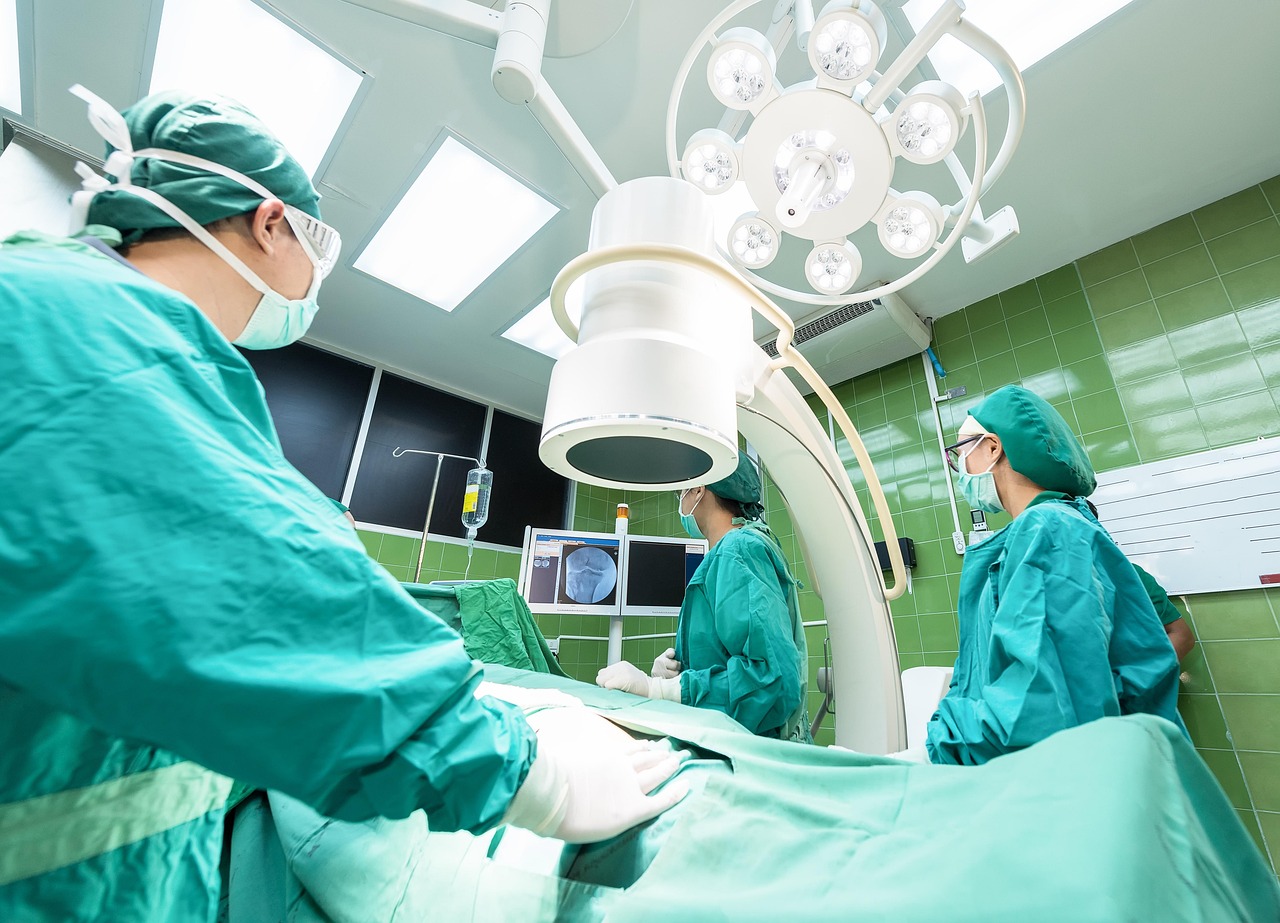
What is a B.Sc. in Operation Theatre Technology? Course Overview, Scope, and Career Opportunities *
Key Takeaways:
- Get to know everything about the B.Sc. in Operation Theatre Technology program
- Know how the course combines theoretical knowledge with practical skills
- Explore why the expanding healthcare infrastructure, increasing demand for skilled OT technologists, and opportunities for specialisation make it a promising and rewarding career
When you think of surgery, you probably think of surgeons, but their success is equally dependent on the Operation Theatre Technologist, or OT Technologist, a professional who has obtained a B.Sc in Operation Theatre Technology. It is an undergraduate paramedical program that prepares students to assist in the surgery, maintain sterility and assist the surgeon and surgical team.
Typically, the B.Sc Operation Theatre Technology eligibility criteria only require candidates to pass 10+2 in any science subject. The course involves practical (hands-on) knowledge of patient care, OT protocols/ procedures, sterilization, etc. All of which represent the central elements of the B.Sc. OTT course syllabus and subjects. With the increasing complexity of surgeries, the scope of a B.Sc graduate in Operation Theatre Technology is broadening, offering exciting career prospects.
This article discusses every important aspect of the program, including jobs after B.Sc Operation Theatre Technology, the future of operation theatre technology, and details about the top B.Sc OTT colleges in India.
B.Sc in Operation Theatre Technology Course Overview
BSc in Operation Theatre Technology is an undergraduate course that trains students to work in surgical and emergency healthcare settings. The course includes both classroom theory and practical training. Students are also exposed to working operating theatres.
- Full-Form: Bachelor of Science in Operation Theatre Technology
- Duration: 3 years (Academic study) + 6 months to 1 year (Compulsory Internship)
- Level: Undergraduate (UG), Paramedical/Allied Health Science Course
B.Sc. OTT Program Objectives
- To give students a complete understanding of surgical procedures, surgical instruments, and patient care in the operating theatre.
- To train the students in the operation and maintenance of OT-related medical equipment.
- To ensure that the student masters sterilization, infection control and aseptic technique.
- To learn and develop the extremely high levels of teamwork, communication and ethical decision-making required in high-stress OT situations.
B.Sc OTT Course Syllabus and Subjects
| Year/Semester | Key Subjects and Areas Covered |
|---|---|
| Year 1 / Sem I–II | Human Anatomy & Physiology, Biochemistry, Microbiology, Medical Terminology, Introduction to Operation Theatre Technology, Medical Ethics, Basics of Infection Control |
| Year 2 / Sem III–IV | Pathology, Pharmacology, Surgical Instruments & Equipment, Anesthesia Technology & Monitoring, Sterilization Methods & CSSD Procedures, Environmental Health, Quality Management |
| Year 3 / Sem V–VI | Advanced Operating Room Technology, General, Orthopaedic, Neuro, Cardiac and Urology Surgery, Emergency Medicine and Critical Care, Pre-, Intra- and Post-operative Patient Care, Law and Ethics |
| Internship (6–12 months) | Take part in clinical rotations |
Practical Training and Internship
One of the most remarkable features of a B.Sc in Operation Theatre Technology is the structured internship program.
- Typically, students are trained for 6 to 12 months in several departments, developing skills needed to function in highly stressful situations, while better preparing them for jobs after B.Sc Operation Theatre Technology.
- The clinical postings and simulations that students undertake across the semesters build confidence in OT practices.
- This practical experience enhances their technical expertise, judgment and readiness for critical situations.
- Students have different options for jobs after B.Sc Operation Theatre Technology, as they have an equal combination of practical experience and theoretical knowledge to assist surgical teams more effectively.
Eligibility Criteria for Admission to B.Sc Operation Theatre Technology Course
The following are the details to meet the B.Sc Operation Theatre Technology eligibility:
| Minimum Qualification | Passed 10+2 or equivalent examination from a recognised board |
|---|---|
| Required Subjects | Physics, Chemistry, and Biology (PCB) are mandatory in most institutions |
| Alternative Subjects | Some colleges may accept PCM (Physics, Chemistry, Mathematics) with relevant vocational subjects |
| Minimum Marks | 45%–50% aggregate in PCB/PCM for the general category; 40%–45% for reserved categories |
Age Limit
- Minimum age: 17 years as of December 31 of the admission year
- Maximum age: Up to 35 years in some institutions, with relaxations for SC/ST/OBC candidates
B.Sc. OTT Admission Process in India
These are the different ways that colleges/institutions offering B.Sc. OTT carry out the admission process:
- Merit-Based Admission: Many colleges shortlist candidates based on their 10+2 PCB marks
-
Entrance Exams: Examples of entrance tests for selected institutions (and/or universities) may include:
- CUET-UG (for central universities)
- JENPAS UG (West Bengal State-Level entrance exam)
- University-level exams like DPU CET and AEEL
- Interviews or Counselling: Colleges may want to do some sort of personal interviewing or counselling after you have applied and cleared the initial screening.
Documents Required During B.Sc OTT Admission
Here is a list of documents you should keep ready with you, which may be required at the time of admission:
- Mark sheets and passing certificates for 10th and 12th grades – For confirming the qualifications obtained.
- Transfer Certificate (TC) or School Leaving Certificate – To show that you no longer pursue studies with the said school.
- Proof of date of birth – Any document evidencing the date of birth, such as a birth certificate.
- Recent passport-sized photographs – At least 4 to 6 passport-sized photos as per the college’s required format.
- Caste or Category Certificate (if applicable) – For those applying for the reserved category (SC/ST/OBC, etc.) would be mandatory.
- Valid Photo ID Proof – Documents such as an Aadhar Card or PAN bearing your photo and issued by the government would enable identity verification.
Passing the eligibility requirements allows for an easily integrated entrance into the top B.Sc OTT colleges in India.
Job Opportunities and Career Scope After Completing B.Sc in Operation Theatre Technology
As the number of surgeries, robot-assisted procedures, and healthcare facilities are increasing with each passing day, so is the career scope of B.Sc Operation Theatre Technology. Before, during and after surgery, a B.Sc in Operation Theatre technologist has an important role to play in.
Key Responsibilities
| Phase | Main Duties |
|---|---|
| Pre-operative | OT preparation, instrument sterilisation, equipment checks |
| Intra-operative | Assisting surgeons and anaesthetists, handling instruments, and monitoring vitals |
| Post-operative | Cleaning OT, managing waste, patient transfer, and equipment care |
| Other Tasks | Documentation, basic troubleshooting of OT equipment |
Employment Areas
| Sector | Examples |
|---|---|
| Hospitals & Clinics | Government/private hospitals, daycare centres, speciality surgical clinics |
| Medical Companies | Technical roles in surgical/anaesthesia equipment firms |
| Research & Academia | Clinical trials, teaching (with higher education) |
Common Job Roles
- Operation Theatre Technologist
- Anesthesia Technician
- Surgical Assistant
- CSSD Technician
- Endoscopy or ER Technician
- Medical Equipment Specialist
Career Growth & Higher Studies
- M.Sc. in OT, Anaesthesia, or Critical Care Technology
- PG Diplomas in CSSD, OT Management
- Hospital Administration or an MBA in Healthcare for leadership roles
This field offers strong job potential, especially for graduates from top B.Sc OTT colleges in India, aligning with the evolving future of operation theatre technology.
Salary Expectations for Operation Theatre Technologists in India
The salary for B.Sc Operation Theatre Technology professionals varies by experience, city, and employer.
The salary for B.Sc Operation Theatre Technology professionals varies by experience, city, and employer.
- Level of experience: Junior, middle and senior level
- Employer types: Government hospitals, private hospitals, speciality clinics
- Location: Chennai, Bengaluru, Mumbai, Delhi, etc, pay more
- Extra requirements: Critical care experience, anaesthesia administration, surgical tool design experience
Average Salary Ranges
| Experience Level | Salary Range (INR) |
|---|---|
| Entry-Level (0–2 yrs) | ₹2.5 LPA – ₹4.5 LPA |
| Mid-Level (2–5 yrs) | ₹4.5 LPA – ₹7.5 LPA |
| Senior (5+ yrs) | ₹7.5 LPA – ₹12 LPA or higher |
Perks and Benefits
- Night shift allowance for long hours or emergency duty
- OT (Overtime) Pay for working extra hours
- Health insurance – Individual/Family
- Bonuses or Annual incentives for performance
- Higher in private/corporate hospitals than in small clinics/nearby hospitals
- Can get more with experience/specialisation, and seniority
Key Skills Required to Be a Successful Operation Theatre Technologist
B.Sc. Operation Theatre Technology's career requires more than just academic excellence. No matter how broad the scope of the B.Sc in Operation Theatre Technology is, professionals will want to cultivate a solid balance of ethical reasoning, technical competence, and interpersonal aptitude to work successfully in surgical settings characterised by pace and unpredictability. These professional attributes will not only bolster employability, but will also lead you to a range of different careers after a B.Sc. in Operation Theatre Technology, particularly if you graduate from the best B.Sc. OTT colleges in India.
- Experience in using advanced surgical tools, medical apparatus and occupational therapy procedures.
- Detail orientation can help prevent surgical errors and help keep areas sterile.
- Making minor adjustments to fragile surgical instruments during delicate procedures requires precise eye-hand coordination.
- Ability to remain calm and focused in a crisis/situation/emergency/sensitive procedure.
- Interact/Communicate with anaesthetists/nurses/surgeons in a professional/effective manner (teamwork).
- Recognising equipment failure and adaptability when the unexpected occurs in the OT.
- Maintaining professional standards of care, patient confidentiality, etc.
Conclusion
If you are looking to work in a surgical environment and play a direct role in patient care, then a B.Sc. Operation Theatre Technology is the right course for you. As the healthcare infrastructure is growing and surgeries are being upgraded with the latest techniques, the scope of B.Sc in Operation Theatre Technology has widened and is providing steady, respected and well-paid careers.
The B.Sc OTT course syllabus and subjects equip graduates with both knowledge and training in the field. After fulfilling the B.Sc operation theatre technology eligibility and getting enrolled into the top B.Sc OTT colleges in India, they provide numerous career opportunities in hospitals, clinics, research, and healthcare technology companies.
Whether you want to start working soon or have plans for further specialisation, the field of operation theatre technology will be expanding in the years to come. Students who have a solid base, an ethical mind, and a desire to learn more can enter one of the various jobs after B.Sc Operation Theatre Technology without any qualms and go on to make a career in the field of surgical care.
FAQs


